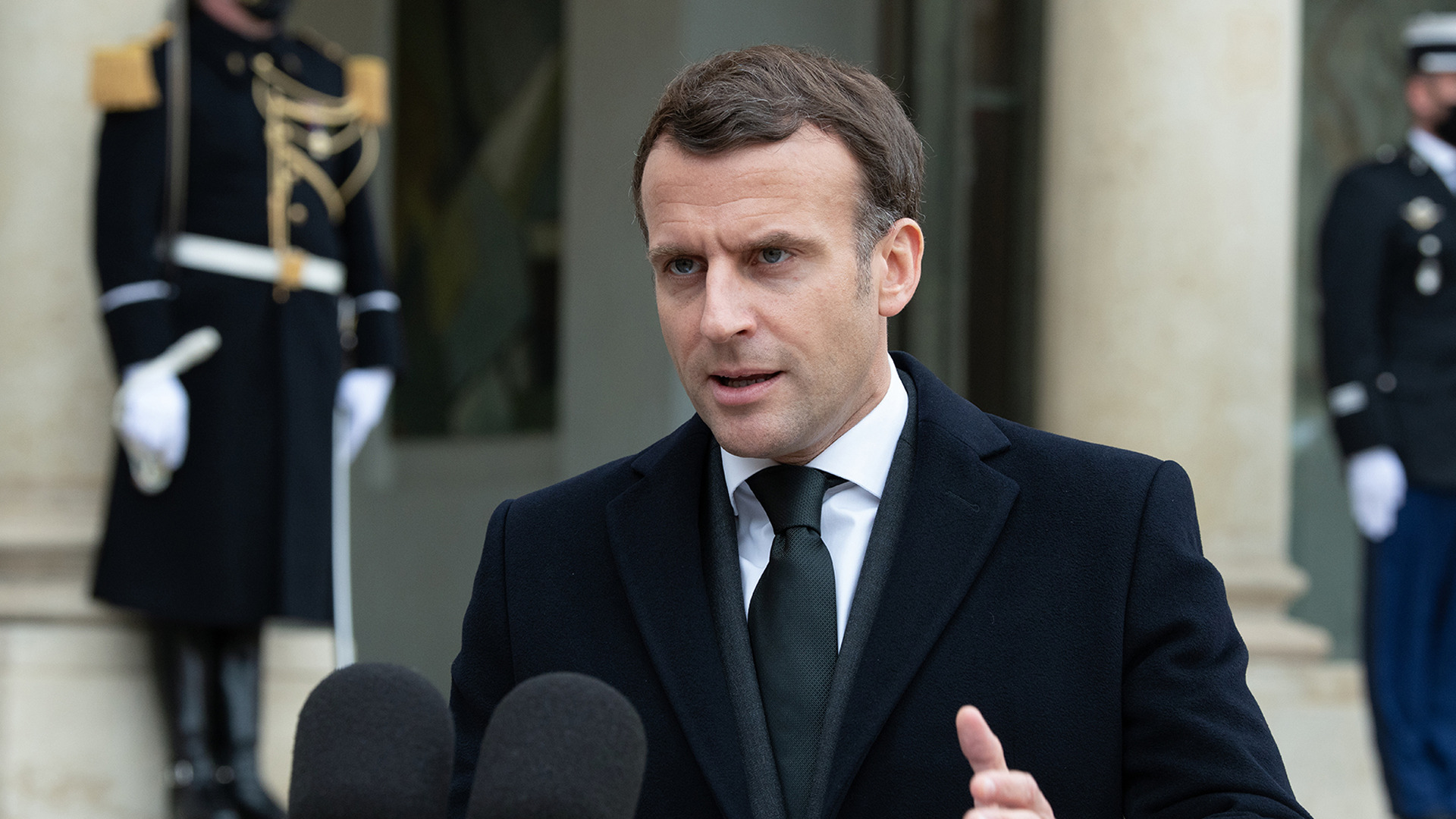Just as every US president stands before cameras on the eve of Thanksgiving to pardon a turkey, every French president appears on television on New Year’s Eve to offer his wishes to the nation for the new year.
This year, Emmanuel Macron observed the ritual with his usual aplomb. He nevertheless caused something of a stir when, evoking the exceptional heat waves that repeatedly buffeted France this past summer, he claimed that no one could have predicted such occurrences.
Le Monde summed up the ensuing controversy in these terms: “During his New Year’s Eve address to the French public, the French president suggested the climate crisis was unpredictable, causing an outcry from scientists and members of the opposition.”
Today’s Weekly Devil’s Dictionary definition:
Unpredictable:
The quality attributed to anything easily foreseeable but which politicians feel they have imperative reasons to ignore.
Contextual note
Here is Le Monde’s full translation of the passage of Macron’s pair of questions: “Who could have predicted the wave of inflation that was unleashed? Or the climate crisis and its spectacular impact on our country this summer?”
The obvious answer to both questions is: anyone who has been paying attention. One critic quoted by Le Monde observed: “You have to be completely ignorant to write and then speak sentences like that.” Another complained about the lack of seriousness of the entire administration: “These words are written, read and reread by his team and then spoken by the President of France. That no one noticed the problem shows a disconnect between the politicians and the scientists and environmentalists, who have been concerned about this for years, but also with young people, who are worried about their future.”
This raises a more general question for an increasingly frustrated public: should politicians and especially heads of state be held to their word? A week before the first round of last April’s presidential election, Macron promised: “My policy over the next five years will be focused on the environment or nothing at all.” We might logically conclude that, given his self-proclaimed failure even to listen to what every scientist has been telling him for years about climate change, he is focused on nothing at all.
That isn’t entirely true, since, among other things – including France’s ambiguous role in the Ukraine war, which has also left him confused – Macron has returned to focusing on the conundrum that poisoned his first term as president: reforming France’s complex pension system. He is also faced with a more fundamental, and indeed existential problem: finding a way to govern with a minority in Parliament and strong opposition coming from two sides, a populist left and right.
That is the question that absorbs most of his energy. Macron’s center lacks any kind of discernible political definition, whereas the left and right, with their contrasting but sometimes complementary nationalism, better reflect the mood of the French people, who remain confused and troubled by all the “unpredictable” questions, from inflation and climate change to France’s role in NATO’s war in Ukraine.
Historical note
No one expects politicians to predict the future. But in democracies at least they are elected to anticipate and respond to visible trends and then imagine and eventually implement appropriate responses when those trends portend negative effects. That also means that their politics will be literally engaged in those trends. Macron’s blithe dismissal of the incomprehensibility of the effects of climate change represents the point of view of someone who does not feel engaged, of an outside observer.
This seems to be part of a trend. As the world’s problems become increasingly more complex, political and even military leaders have taken to pretending to exercise a passive, uninvolved role, as if the consequences of the actions they are responsible for are matters of uncontrollable fate. In June of last year, in a joint press conference with US Secretary of State, Antony Blinken, NATO’s secretary general, Jan Stoltenberg mused out loud: “I would just say that wars are unpredictable. We were able to predict the invasion, but how this war will evolve, it’s very hard to predict.”
Stoltenberg is right, especially when describing what is clearly a long-expected if not planned proxy war between his side, NATO and Russia. What happens to Ukraine sitting in the midst of a showdown between two nuclear powers fighting over the issue of global hegemony, is unpredictable. So is Ukraine’s reaction to what is happening to it. That is why one thing that Stoltenberg himself believes is predictable: “that at some stage this will end at the negotiating table.” When and how that will happen remain unpredictable, especially since we know that the nearly successful negotiations in March and April were prevented from proceeding by NATO itself, represented on that occasion by UK’s then prime minister Boris Johnson, as reported by Ukrainian news sources.
Stoltenberg states that NATO predicted the Russian invasion. That was an easy call, since in December 2021 both NATO and the Biden administration refused to sit down with the Russians to discuss the security situation that had been Russia’s concern for the past two, if not three decades. Refusing to discuss a complex problem is a recipe for provoking an event that has been threatened as a response to the refusal, such as an invasion to cut the Gordian knot. In this case, the troops were lined up for such an invasion. It required little divinatory skills to predict something that had been promised as the inevitable response to inaction.
At the time of the Russian proposal, The Guardian doubted that NATO would accept its terms. “Those proposals are likely to be viewed extremely negatively by Nato countries, in particular Poland and the Baltic states. They have warned that Russia is attempting to re-establish a sphere of influence in the region and view the document as proof Moscow is seeking to limit their sovereignty.” History tells us that at the beginning of any negotiation all parties “view negatively” the terms proposed by the other side. That is the whole point of diplomacy: to narrow down the terms and redefine them in a way that is acceptable to all sides. For an honest diplomat, choosing to avoid discussing a tense situation because one views “negatively” an initial proposal and then predicting an invasion destined to turn into a destructive war is not only a provocation but a betrayal of the very idea of diplomacy. This is aggravated by the propaganda effect, once the war has begun, of calling it “unprovoked.” But that is exactly what NATO, led by the US, has done. At least, unlike Macron, they admit they could predict the worst.
In his recently published book, Histoires Diplomatiques, the seasoned French former diplomat, Gérard Araud explains how he would have approached this question. “Nothing can excuse the invasion of Ukraine, but it isn’t entirely unexplainable. It was undoubtedly possible to reconcile the enlargement of NATO to countries requesting membership while maintaining good relations with Russia. To do so would have required defining a European security architecture to replace the current one. The triumphant West believed that that was not necessary.” (My translation)
In other words, politicians predict events they are in a position to provoke and, at the same time – as Macron has shown – are capable of proclaiming that no one could have predicted the negative effects of their own action or inaction.
Elsewhere in his book, Araud cites Napoleon’s assessment of the character of Austrian statesman, Klemens von Metternich: “Mr Metternich is very close to becoming a statesman: he lies impeccably.” Polls conducted in many nations reveal that voters have less and less confidence in the integrity of their political leaders. Not all politicians reach the level of newly elected Representative George Santos in the quantity of lies they produce. But at least Santos’s lying about his own resumé will have less negative impact on the future of humanity than Macron’s feigned ignorance of the climate threat or Stoltenberg’s and Biden’s denial of the need for a new security framework in Europe. Some problems really do need to be solved by first sitting down and talking them through.
“”
*[In the age of Oscar Wilde and Mark Twain, another American wit, the journalist Ambrose Bierce produced a series of satirical definitions of commonly used terms, throwing light on their hidden meanings in real discourse. Bierce eventually collected and published them as a book, The Devil’s Dictionary, in 1911. We have shamelessly appropriated his title in the interest of continuing his wholesome pedagogical effort to enlighten generations of readers of the news. Read more of Fair Observer Devil’s Dictionary.]
The views expressed in this article are the author’s own and do not necessarily reflect Fair Observer’s editorial policy.
Support Fair Observer
We rely on your support for our independence, diversity and quality.
For more than 10 years, Fair Observer has been free, fair and independent. No billionaire owns us, no advertisers control us. We are a reader-supported nonprofit. Unlike many other publications, we keep our content free for readers regardless of where they live or whether they can afford to pay. We have no paywalls and no ads.
In the post-truth era of fake news, echo chambers and filter bubbles, we publish a plurality of perspectives from around the world. Anyone can publish with us, but everyone goes through a rigorous editorial process. So, you get fact-checked, well-reasoned content instead of noise.
We publish 2,500+ voices from 90+ countries. We also conduct education and training programs
on subjects ranging from digital media and journalism to writing and critical thinking. This
doesn’t come cheap. Servers, editors, trainers and web developers cost
money.
Please consider supporting us on a regular basis as a recurring donor or a
sustaining member.
Will you support FO’s journalism?
We rely on your support for our independence, diversity and quality.








